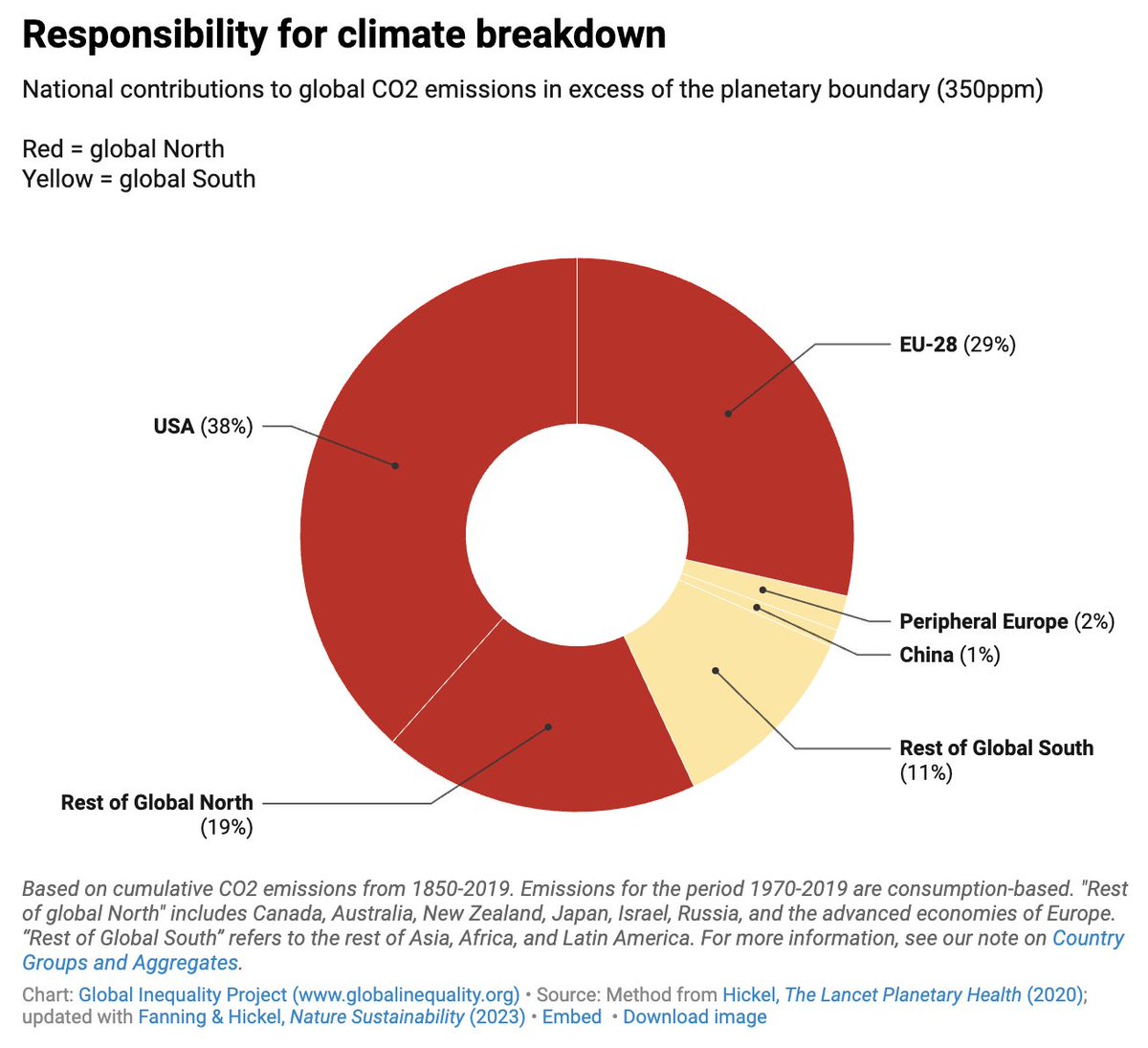We've all seen these charts. They go viral on social media every few months, with claims that "green growth is happening".
Is green growth really happening? We assess this question empirically in a new article out today in The Lancet Planetary Health: 🧵 thelancet.com/journals/lanpl…

Is green growth really happening? We assess this question empirically in a new article out today in The Lancet Planetary Health: 🧵 thelancet.com/journals/lanpl…

First, CO2-GDP decoupling is not news. We have known about it for a long time. It's been happening in some countries since the 1990s, even in trade-adjusted terms. It is the predictable and expected result of transitioning to lower-carbon energy sources.
But decoupling does not necessarily mean "green growth". Scientists have indicated that to qualify as "green", decoupling needs to deliver emissions reductions fast enough to meet the Paris Agreement objectives. It's all a question of speed.
So, we tested this.
So, we tested this.
We identified 11 high-income countries that achieved absolute decoupling of GDP from trade-adjusted emissions between 2013 and 2019. We assessed whether the decoupling is consistent with a 50% chance of 1.5C or "well below 2C", given an equitable allocation of the carbon budget.
We found that, at the achieved rates, these countries would on average take more than 220 years to reduce their emissions by 95%, emitting 27 times their remaining 1.5C fair-shares in the process.
There is nothing "green" about this. It is a recipe for disaster.
There is nothing "green" about this. It is a recipe for disaster.

Indeed, narratives that celebrate decoupling achievements in high-income countries as "green growth" are misleading and represent a form of greenwashing. Much faster mitigation is needed. 

To meet their 1.5C fair-shares alongside continued growth (i.e., to achieve "green growth"), decoupling rates would on average need to increase by a factor of ten by 2025. This is unlikely to be achievable given the unique physical constraints of a growth-oriented scenario. 

Things are a bit easier with a target of 1.7C ("well below 2C"), but all 11 countries still fall far short of Paris-compliant emission reductions, and the necessary decoupling rates for "green growth" still seem out of reach. And remember, these are the best-performing countries. 

So what can high-income countries do to achieve faster emission reductions? In the Discussion section, we show how post-growth mitigation policies can *accelerate* decoupling and decarbonization much faster than what can be achieved in a growth-oriented scenario.




The piece is free to read here. Also, a big congratulations to my brilliant co-author @JefimVogel. thelancet.com/journals/lanpl…
• • •
Missing some Tweet in this thread? You can try to
force a refresh










